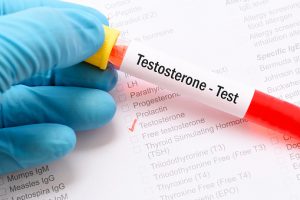
Researchers followed two groups of men for eight years for an observational study to determine whether testosterone therapy had an effect on the risk of cardiovascular disease. The first group had been treated with testosterone therapy for their hypogonadism, while the second group had not. After the eight years, only two men from the first group had died, and neither instance was related to cardiovascular disease.
In contrast, there were 21 deaths in the second group, 19 of which were caused by cardiovascular-related events. This group also saw 26 non-fatal myocardial infarctions or heart attacks, and 30 non-fatal strokes, while the first group experienced none. Based on these results, the team concluded that long-term testosterone therapy for men with hypogonadism may be an effective method to help improve cardiometabolic function and reduce the risk of cardiovascular disease and related events.
Corresponding author Dr. Abgulmaged M. Tarish commented on these results, stating “The low CV events observed in the T-group compared to the untreated (control) group strongly suggest that TTh is protective. We believe that the protective effect of T on the CV system provides clinicians with the opportunity to utilize this approach for secondary prevention for hypogonadal men with a history of CV events.”
These results show that there may be a protective benefit gained when treating hypogonadal males with long-term testosterone therapy, and with further research, it may be utilized to help prevent cardiovascular disease and events, as well as to treat testosterone deficiency.